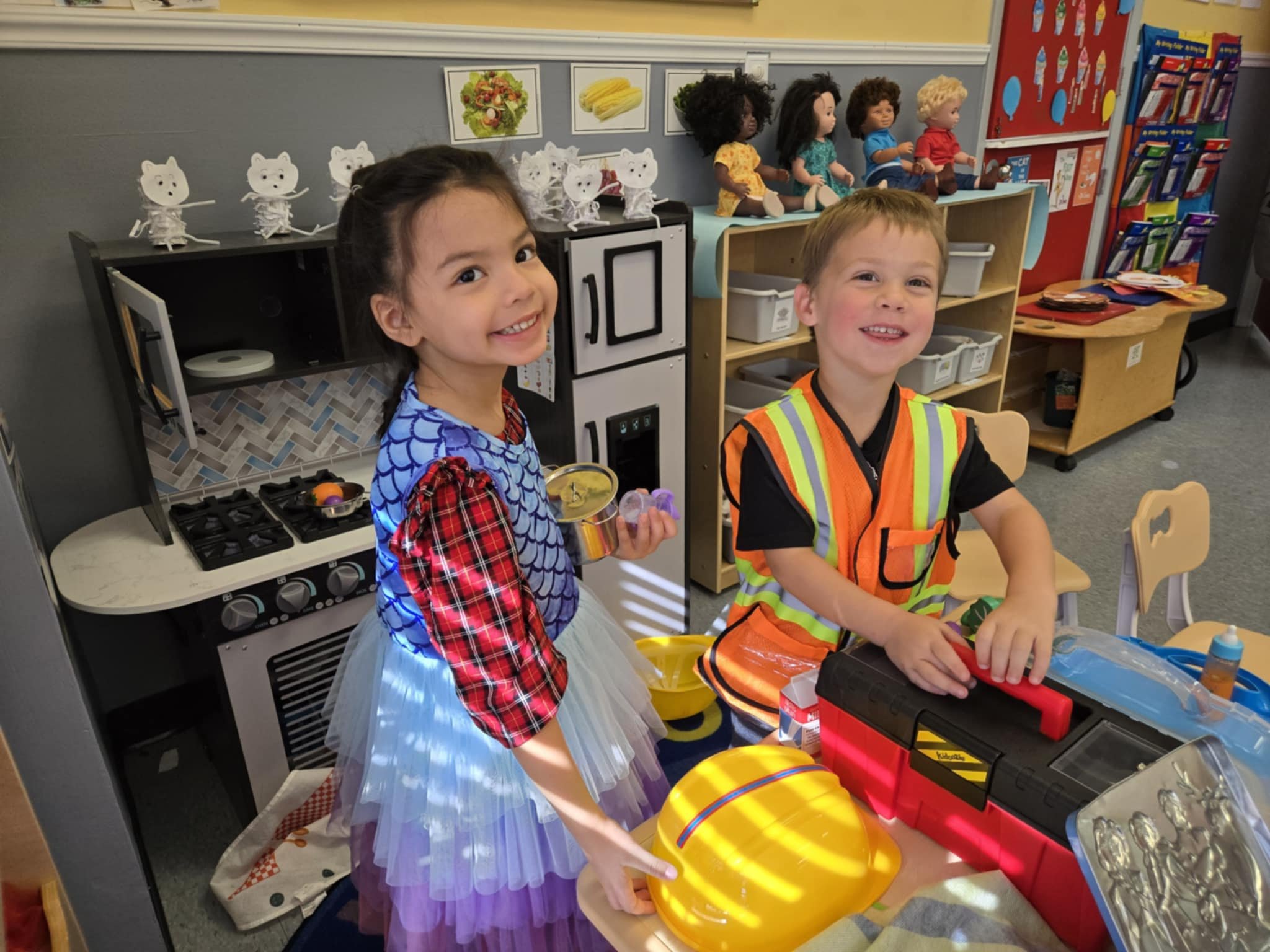Play Now, Genius Later: Why Preschool Shouldn’t Feel Like College
Hello friends!
At The Melbourne Preschool, we love a good alphabet song and some early math magic—but let’s be real: preschool isn’t Harvard…. and it shouldn’t be! Research shows that play-based learning is actually the best way for young children to build the brainpower they need for future academic success. Let’s talk about it!
The Science of Play
Think playing is unserious and just for fun? Think again! According to the American Academy of Pediatrics (AAP), play is essential for developing critical thinking, problem-solving, and social skills. A study published in Pediatrics found that children who engage in imaginative, hands-on play have better language development, higher creativity, and stronger emotional regulation, than children who have less imaginative play opportunities.
Meanwhile, research from the National Association for the Education of Young Children (NAEYC) shows that kids in overly academic preschool programs often experience higher stress levels and burnout—yes, burnout at age four!😭 Pushing worksheets over play can actually make kids less engaged in learning long-term.
So What’s the Right Balance?
While early exposure to letters, numbers, and science is great, young children learn best through active exploration—think building towers, pretending to be astronauts, or discovering what happens when you mix red and blue paint. These experiences lay the foundation for academic learning in a way that’s natural, exciting, and meaningful. It’s been proved that emphasizing that play is essential for cognitive, social, and emotional development in preschool-aged children.
Our Approach: Play With a Purpose!
At The Melbourne Preschool, we embrace purposeful play—activities that spark curiosity while building academic skills in a developmentally appropriate way. Whether it's counting while making pretend cupcakes in the play kitchen or practicing fine motor skills through finger painting, learning happens naturally when kids are engaged, happy, and having fun!
So, parents, take a deep breath. Your preschooler doesn’t need study hall, or even homework! They need playtime, exploration, and a whole lot of fun. The academics will come—but for now, let’s build a strong foundation for the love of learning through play! That’s why Lifelong Learning Starts Here.
Academic Sources:
American Academy of Pediatrics (AAP). Yogman, M., Garner, A., Hutchinson, J., Hirsh-Pasek, K., & Golinkoff, R. M. (2018). The power of play: A pediatric role in enhancing development in young children. Pediatrics, 142(3), e20182058.
National Association for the Education of Young Children (NAEYC) – NAEYC (2020). Developmentally Appropriate Practice (DAP) Position Statement.
HighScope Perry Preschool Study. Schweinhart, L. J., Montie, J., Xiang, Z., Barnett, W. S., Belfield, C. R., & Nores, M. (2005). Lifetime effects: The HighScope Perry Preschool Study through age 40. HighScope Press.
University of Cambridge Research on Play-Based Learning – Whitebread, D. (2012). The importance of play: A report on the value of children's play with a series of policy recommendations. University of Cambridge.









